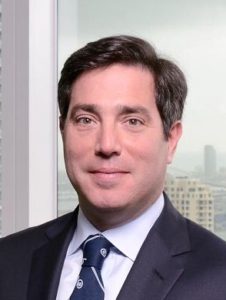

Two years after the property/casualty insurance market experienced historic catastrophe losses, it is finally showing signs of hardening, said W.R. Berkley Corp.’s president and CEO.
W. Robert Berkley Jr., speaking during the company’s Q1 2019 earnings conference call on April 23, argued W.R. Berkley Corp.’s 6.4 percent average rate increase (excluding workers compensation) is proof of the trend.

“It’s worth noting that we achieved this with our renewal retention ratio remaining at a…similar level to what it has been for the past several years,” Berkley said during the call.
Berkley said that the broader market is in sync with this.
“From our perspective, with the exception of workers compensation, by and large, every major [alignment] of business within the commercial lines space is in some point of firming,” he said.
The thing is, it took a few years to reach this point, Berkley observed.
“The property market – everyone expected it would have shifted after the cat activity we saw in [2017]. It didn’t respond in early ’18,” Berkley said. “We are now seeing early but meaningful signs that it is responding to the cat activity.”
According to Berkley, the casualty market is reaching that point as well, though it has been harder to track.
“The casualty market is perhaps even more impaired but not as visible because of the nature of the business and the time that it takes,” Berkley said. “It is perhaps equally challenged in the position that it is in.”
In W.R. Berkley’s case, the company’s CEO said that it is in the first stage of tightening, with rates moving up. Next, over time, will be “tightening of terms of conditions, and then once we get terms and conditions where we like, we will start to see exposure grow,” he said.
Slow to Change
The reality that the P/C insurance market took a long time to harden reflects Berkley’s broader view of its dynamics.
That philosophy is based on “something my boss taught me early in my career in the industry,” Berkley said, referring to his father and Berkley Chairman William R. Berkley.
The younger Berkley explained: “For the industry to change, it always seems to take longer than you expect it would or than it should.”
Berkley noted that the dynamic was true when he first learned that lesson “a couple of decades ago,” and he said this remains the case today, despite the industry having access to better data and analytics.
The other lesson Berkley said he learned is that the market conditions, whether hard or soft, aren’t necessarily what one expects.
“As a result of that delay [in industry change] and recognizing the need for change, or the opportunity for change, is when things look bad they tend to be actually worse than you expect, and when things look good, they tend to actually be better than you expect,” Berkley said. “I think those two thoughts apply very well to the industry every day [and] they are particularly applicable these days.”
Berkley added that considering how aggressive the market has been in recent years, the need for a market firming was “glossed over because of the benign cat environment.” This dynamic was bound to shift, he said.
“At some point, you can’t keep putting lipstick on the pig, as my father would say,” Berkley said.